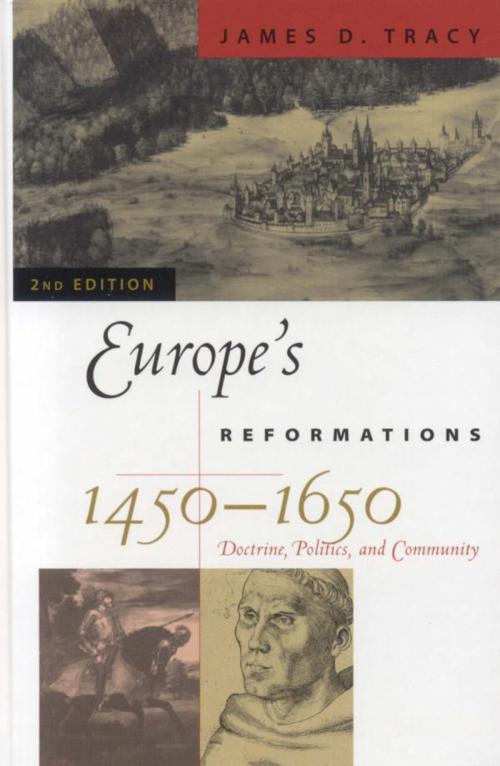| Author: | James D. Tracy | ISBN: | 9780742579132 |
| Publisher: | Rowman & Littlefield Publishers | Publication: | March 23, 2006 |
| Imprint: | Rowman & Littlefield Publishers | Language: | English |
| Author: | James D. Tracy |
| ISBN: | 9780742579132 |
| Publisher: | Rowman & Littlefield Publishers |
| Publication: | March 23, 2006 |
| Imprint: | Rowman & Littlefield Publishers |
| Language: | English |
In this widely praised history, noted scholar James D. Tracy offers a comprehensive, lucid, and masterful exploration of early modern Europe's key turning point. Establishing a new standard for histories of the Reformation, Tracy explores the complex religious, political, and social processes that made change possible, even as he synthesizes new understandings of the profound continuities between medieval Catholic Europe and the multi-confessional sixteenth and seventeenth centuries. This revised edition includes new material on Eastern Europe, on how ordinary people experienced religious change, and on the pluralistic societies that began to emerge. Reformation scholars have in recent decades dismantled brick by brick the idea that the Middle Ages came to an abrupt end in 1517. Martin Luther's Ninety-five Theses fitted into an ongoing debate about how Christians might better understand the Gospel and live its teachings more faithfully. Tracy shows how Reformation-era religious conflicts tilted the balance in church-state relations in favor of the latter, so that the secular power was able to dictate the doctrinal loyalty of its subjects. Religious reform, Catholic as well as Protestant, reinforced the bonds of community, while creating new divisions within towns, villages, neighborhoods, and families. In some areas these tensions were resolved by allowing citizens to profess loyalty both to their separate religious communities and to an overarching body-politic. This compromise, a product of the Reformations, though not willed by the reformers, was the historical foundation of modern, pluralistic society. Richly illustrated and elegantly written, this book belongs in the library of all scholars, students, and general readers interested in the origins, events, and legacy of Europe's Reformation.
In this widely praised history, noted scholar James D. Tracy offers a comprehensive, lucid, and masterful exploration of early modern Europe's key turning point. Establishing a new standard for histories of the Reformation, Tracy explores the complex religious, political, and social processes that made change possible, even as he synthesizes new understandings of the profound continuities between medieval Catholic Europe and the multi-confessional sixteenth and seventeenth centuries. This revised edition includes new material on Eastern Europe, on how ordinary people experienced religious change, and on the pluralistic societies that began to emerge. Reformation scholars have in recent decades dismantled brick by brick the idea that the Middle Ages came to an abrupt end in 1517. Martin Luther's Ninety-five Theses fitted into an ongoing debate about how Christians might better understand the Gospel and live its teachings more faithfully. Tracy shows how Reformation-era religious conflicts tilted the balance in church-state relations in favor of the latter, so that the secular power was able to dictate the doctrinal loyalty of its subjects. Religious reform, Catholic as well as Protestant, reinforced the bonds of community, while creating new divisions within towns, villages, neighborhoods, and families. In some areas these tensions were resolved by allowing citizens to profess loyalty both to their separate religious communities and to an overarching body-politic. This compromise, a product of the Reformations, though not willed by the reformers, was the historical foundation of modern, pluralistic society. Richly illustrated and elegantly written, this book belongs in the library of all scholars, students, and general readers interested in the origins, events, and legacy of Europe's Reformation.















